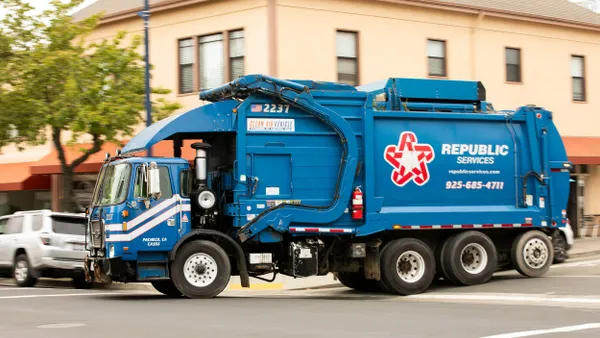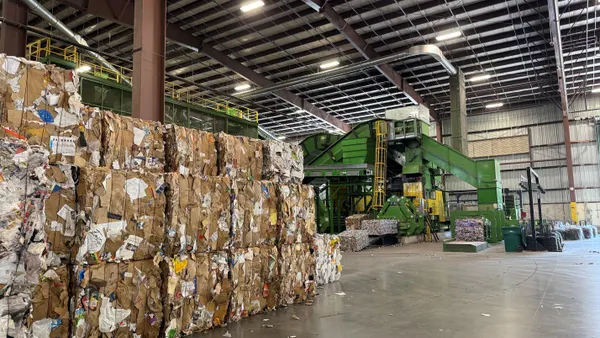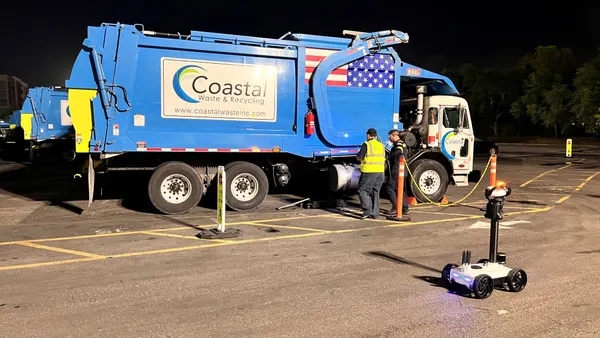Dive Brief:
- The American Transportation Research Institute's (ARTI) latest annual survey found the commercial driver shortage is a growing concern in the trucking industry. For the first time since 2006, this ranked as the top issue for respondents above all else. Driver retention also rose in the rankings to become the number five most pressing issue in this year's survey.
- Proposed strategies for the shortage included a graduated commercial drivers license (CDL) program to attract younger drivers, and partnering with the U.S. Department of Labor to create a national truck driver recruitment program. Equalizing and streamlining license requirements between the Department of Transportation and the Department of Defense to reduce entry barriers was additionally mentioned as a potential solution.
- The ATRI survey also identified two emerging issues that have been points of discussion in the waste and recycling industry. Autonomous vehicles ranked 12th on the survey list and are expected to rise in the rankings during future years. The growing diesel technician shortage, ranked 13th, was also described as "critical."
Dive Insight:
The ATRI report, released this week at the American Trucking Associations' annual conference, is considered a key indicator of where trucking trends are headed and helps inform advocacy efforts across multiple industries. Other top priorities for 2017 — the electronic logging device mandate, hours-of-service regulations, truck parking — may not be as relevant to most waste industry fleet managers, but the employee shortage is a well-known challenge. The lack of drivers with CDLs that want to work with waste has already affected operations in multiple markets, making it a top concern among recruiters and trade associations.
With more than a quarter of truck drivers across all industries over the age of 55, it's projected that at least 890,000 new drivers will be needed during the next decade, just to maintain current staffing levels. According to the Bureau of Labor Statistics data, an additional 67,000 diesel technicians and 75,000 diesel engine specialists will be needed by 2022. Despite some recent efforts to make the transition easier for veterans, and reduce procedural barriers for all CDL applicants, the ATRI report observed that no "viable solutions to the pervasive trucking industry staffing challenges have yet to emerge."
Earlier this year, an international report projected that autonomous vehicles could reduce the need for new U.S. and European truck drivers 50-70% by 2030. This automation is seen as inevitable by some in the global waste industry, and has already been tested by companies such as Volvo on both closed U.S. sites and at least one pilot route in Sweden. Despite these advancements, many believe that it will take years to overcome the potential regulatory or perceptual barriers and see a need for more immediate solutions. Though automation was ranked as a higher priority among drivers than motor carriers in the ATRI survey, which could be taken as a sign that current drivers view the potential driverless trend as a more immediate reality than their employers.











